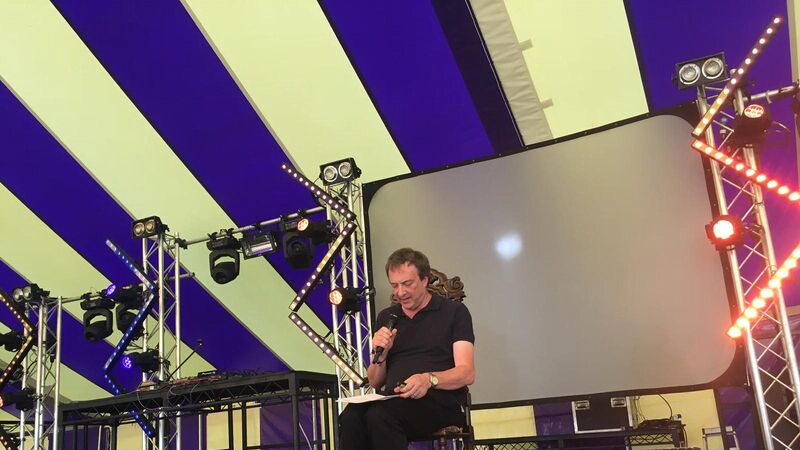The most extraordinary thing about Daphne Caruana Galizia’s murder was that “they got people to kill her in a way that would be recognised in Southern Italy, that shouldn’t be recognised elsewhere”, according to the author of the bestseller ‘McMafia’ who questioned the detail behind “the hired hands”.
Speaking to The Shift at the Byline journalism festival in the UK, British journalist Michael (Misha) Glenny said it was obvious that Caruana Galizia was murdered to stop her reporting on money laundering and corruption.
Her assassination “shines a light on Malta, and everyone needs to know that Malta, amongst other countries including the UK, is a problem for the EU in the case of dirty money.”
The award-winning investigative journalist and historian specialised in Central Europe for both the BBC and The Guardian and has researched organised crime for 25 years.
His bestselling book, ‘McMafia: A Journey Through the Global Criminal Underworld’, a groundbreaking study of global organised crime, was the inspiration for the highly acclaimed BBC TV drama of the same name.
During his presentation at the festival, Glenny drew connections between politics and dirty money. “I can tell you that the global economy and global politics are intimately related to the subject of international organised crime. You can’t understand one without the other.”
“I do think the murder of Daphne Caruana Galizia has elements in common with the murder of Jan Kuciak,” he said, “in terms of it obviously being a hired hand who was responsible for the actual killing. The big question is what are the real details behind the employment of those hired hands.”
Three suspects who allegedly planted the bomb that killed Caruana Galizia were charged in Malta a few months after her death. The compilation of evidence lasted for almost two years. There is still no date set for the start of the trial. There is as yet no indication of who commissioned the assassination.
In Slovakia, the murder of Jan Kuciak and his fiancee sparked public outrage, with large scale national demonstrations that resulted in the resignation of the Prime Minister and the dismissal of the Police Commissioner within a month. In April 2019, a former soldier confessed to carrying out the murders, and prosecutors charged Slovak businessman Marian Kocner with ordering it. Kocner had companies in Malta set up by his former son-in-law Christian Ellul. They have since been closed down, according to Ellul.
In Malta, however, nearly two years after Caruana Galizia was silenced, the masterminds remain unknown. The Maltese government announced a public inquiry last Friday evening, a few days short of the deadline set by the Parliamentary Assembly of the Council of Europe (PACE).
There was immediate controversy, as members appointed to the Board of Inquiry held ties with the government. Concerns raised included the fact that the government to be scrutinised should not be the one to decide who would be doing the job. The Caruana Galizia family has rejected the appointments until a proper consultation was held.
“Hope died last night,” Caruana Galizia’s son, Andrew, said following the government’s announcement of those appointed to the Board of Inquiry.
The Council of Europe (CoE) Commissioner for Human Rights has expressed concerns about the government’s intentions in finding and bringing the masterminds to justice as Prime Minister Joseph Muscat refused to drop his defamation case against the late journalist two years after her assassination.
Muscat imposed a condition for dropping the case, saying her family had to accept the findings of a report investigating his actions. The Caruana Galizia family has no access to the report as it has not been made public. The family replied that it would not give in to blackmail.
PACE Special Rapporteur Pieter Omtzigt, the author of the scathing report on the rule of law in Malta and the investigation into the journalist’s assassination, adopted in a resolution in May, welcomed the government’s announcement. Yet he warned that appointments, as well as the terms of reference of the public inquiry, will be scrutinised.
He said it was critical that the inquiry was “impartial beyond question”.













